HCG (Human Chorionic Gonadotropin) is often called the pregnancy hormone. During pregnancy, it is known to double every 48-72 hours. Here, we are going to talk about how the HCG hormone can be detected, what is the normal level of the pregnancy hormone in the blood and many more. Also, we are going to take a look at the guideline to the levels of this hormone by week.
Key Things to Know about Pregnancy Hormone
The HCG hormone is made by cells formed in the placenta. It can be detected in the blood within a few days after conception being responsible for nourishing the egg. Studies show that in 85% of pregnancies the HCG level is doubling every 48-72 hours over the course of the first eight to 11 weeks. When talking about the first trimester, this increase signifies a normal pregnancy. The level of HCG hormone is constantly rising reaching its peak during the first 8-11 weeks of pregnancy. After 10-12 weeks, the HCG level declines.
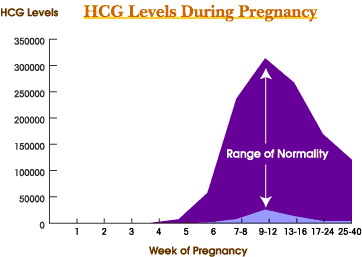
How the HCG Hormone Can Be Detected
It is important to check the level of HCG hormone at the early stages of pregnancy. For this purpose, a blood test and urine test can be conducted about 11 days and 12-14 days after conception respectively. When the presence of this hormone becomes noticeable, the pregnancy test is positive. Interesting that sometimes even the pregnancy test is false positive while the HCG may still be positive showing that you are pregnant.
It might be not necessary to check the hCG level every day unless you are showing signs of a potential problem, for example, Miscarriage, Blighted ovum, Ectopic pregnancy and so on. If there appears a danger of an unhealthy pregnancy, a single ultrasound reading might not be enough. For more accurate results, it is better to use not the single hCG pregnancy test but the HCG blood test known as the quantitative serial beta-hCG assay. It should be done every two to three days to measure the volume of hCG in a milliliter of blood. So, the hCG tests can be divided into two types, qualitative detecting the presence of hCG in the blood, quantitative measuring the level of hCG at the specific moment of pregnancy.
What Is the Normal Level of the Pregnancy Hormone
The Human Chorionic Gonadotropin hormone is measured in milli-international units per milliliter (mIU/mL). It is possible to calculate what should the normal level of HCG be, however, for every single pregnancy it may range significantly. A pregnancy with a low hCG level may even result in a healthy baby. In general, a woman cannot be considered pregnant if her hCG level is less than 5 mIU/mL. A positive pregnancy test should show above 25 mIU/mL. This level is established during the 3d week of pregnancy. A transvaginal ultrasound is a procedure enabling showing a fetus at the early stages of pregnancy when the hCG level reaches between 1,000 – 2,000 mIU/mL. This level is decisive in determining whether the woman is pregnant or not. Only after reaching this level, there is sense to talk about pregnancy.
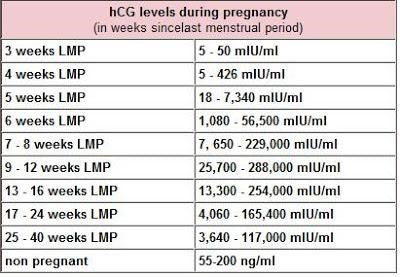
When talking about normal hCG level, it is not only about numbers, besides, a "normal" hCG level can vary extremely from woman to woman. More important is whether the level is increasing as expected. Below is the chart of how the HCG level increases during early pregnancy.
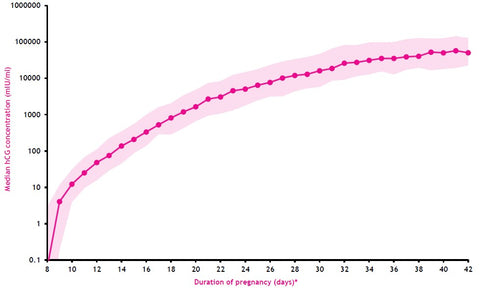
As mentioned above, the hCG hormone should double every 48-72 hours at the early stages of pregnancy until about 9-10 weeks of the pregnancy when it starts to decrease. In case, the hCG levels do not increase during the early stages, it probably means a Miscarriage is taking place.
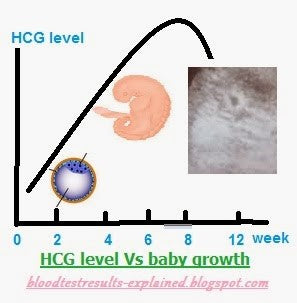
During early pregnancy, it is not easy to figure out what is the “normal” hCG level, however, it can still be checked with the hCG calculator based on the number of days after ovulation. In many pregnancies, HCG level doubles every 48-72 hours or increases by 60% every two days. The HCG level that increases by 40% every two days during early pregnancy can still be considered normal. After the hCG level reaches 6,000 mIU/ml, it may start to double every not two-three but four days. When the HCG level reaches 7000 mIU/ml, a yolk sac is visible. When it over 10 000 mIU/ml (the fourth week), the embryo with a heartbeat is seen.
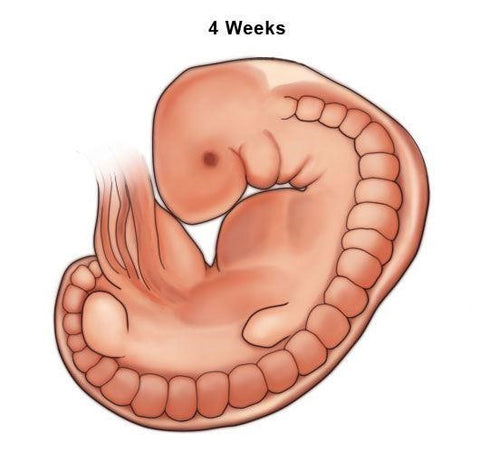
Low and High Levels of the Pregnancy Hormone
As mentioned above, after 10-12 weeks, the HCG level starts to decline. Some “abnormal” outcomes may be a result of too low or high HCG levels. A low level of the HCG hormone can signify:
On the other hand, a high hCG level can define:
One more thing to remember is that sometimes the results of the HCG check may seem to be wrong because the pregnancy date was miscalculated.
To assess the health and status of pregnancy, the 13th week is the highest time to keep track of the HCG level. Most Miscarriages take place at this stage. If your hCG level is lower than expected but still increasing, it can be a sign of a healthy pregnancy. Around 15 percent of pregnancies feature low HCG levels and continue without complications. However, if it begins to drop, your doctor may need to conduct additional examinations as dropping hCG level is usually a sign of an impending Miscarriage.
When talking about the excessively high levels of hCG, in most cases, it indicates multiple pregnancies. To check if you are pregnant with twins, you might need to pass through the qualitative test as it measures the exact amount of the hormone.
The HCG levels are often higher in women who have girls versus women who have boys. It might be difficult to check the sex of a baby by HCG test, so try out one of our gender prediction packages to see if you are having a baby boy or girl.
